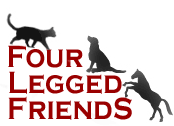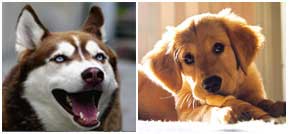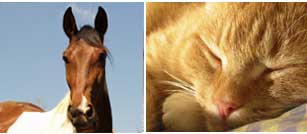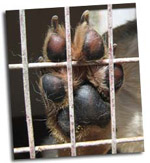


![]() Home
Home
![]() Dogs
Dogs
![]() -
Dog breeds
-
Dog breeds
![]() -
- Alaskan Malamute
-
- Alaskan Malamute
![]() -
- Bouvier des Flandres
-
- Bouvier des Flandres
![]() -
- Boxer
-
- Boxer
![]() -
- Dachshund
-
- Dachshund
![]() -
- Dalmation
-
- Dalmation
![]() -
- Doberman
-
- Doberman
![]() -
- German Shepherd
-
- German Shepherd
![]() -
- Pug
-
- Pug
![]() -
Dog training
-
Dog training
![]() -
- Becoming Alpha
-
- Becoming Alpha
![]() -
- Young Puppy
-
- Young Puppy
![]() -
Dog health
-
Dog health
![]() --
Pup Stages
--
Pup Stages
![]() -
Dog rescue
-
Dog rescue
![]() -
- Adopt A Dog
-
- Adopt A Dog
![]() -
- Dog Rescue UK
-
- Dog Rescue UK
![]() -
- Interview at a Pound
-
- Interview at a Pound
![]() -
- A Life in Chains
-
- A Life in Chains
![]() -
Letting Go
-
Letting Go
![]() Cats
Cats
![]() Horses
Horses
![]() Animal
rescue
Animal
rescue
![]() Pet
Insurance
Pet
Insurance
![]() About us
About us
![]() Site Map
Site Map
![]() uno card rules
uno card rules
I Have a Bad Puppy!
No, you really don't! Read this excellent puppy training article from Wildhaus Kennels, experienced breeders and trainers of show stopping German Shepherds.
I have the puppy from hell. He is destroying everything! Is he just a bad dog, or am I doing something wrong?
There is an old trick to teaching a pup how to be a housedog. Take a newspaper or magazine, roll it up tightly and use tape or rubber bands to hold it together in a roll. Then every time your puppy has an accident, chews something he shouldn’t, gets into the trash or kitty box, or anything else you don’t want him to do, take the newspaper and smack yourself in the head with it while repeating “I should have been watching the puppy. I should have been watching the puppy.”
It’s important to remember that puppies are like kids. They don’t come into this world knowing what we want them to know and being perfect housedogs. They get into trouble not out of spite or because they are “bad”, but because they don’t know any better.
It is up to us to teach them what we want them to learn. Puppies also have very short attention spans and short-term memory. Correcting the puppy after the fact is useless. He will not associate the correction with what he did a few minutes or an hour ago. He will associate it with what he is doing at the moment the correction comes.
Unless you catch the puppy in the act of performing his latest rampage of destruction, there is nothing you can do but clean up the mess and vow to keep a better watch of him next time.
The biggest key to raising a puppy is supervision. Whenever you cannot keep both eyes on what your puppy is doing, put him somewhere that he can’t get into trouble. Crates are excellent for this. A pup can’t mess on the carpet or chew the dining room chairs if he’s in his crate.
When your puppy is loose in the house, supervise him carefully. Keep him in the same room with you, so he can’t scamper off and get into mischief. Close the doors or use baby gates to accomplish this. Puppies are always learning, and it's up to us to make sure that they learn what we want them to, not what we don't want them to know. Dogs are also creatures of habit. Once they have something in their heads, it can be difficult to break that habit.Financial partner
It is much easier to prevent a bad habit from ever developing to begin with. Supervision and preventing him from having the opportunity to them is key to this.
Family Pack Pow Wow
It’s an excellent idea to sit down as a family before the puppy comes home to decide what the rules will be, and discuss how they will be enforced.
Be consistent with the rules, and make sure the entire family cooperates with this. If the family decides that they don’t want the dog to beg while they’re eating or cooking, having one person who always wants to share dinner with the pup will do nothing but confuse the pup and sabotage the rest of the family’s efforts to teach the dog not to beg.
Consistency with all family members is very important. Likewise, when making this list of rules do so with an adult dog in mind, not just a puppy.
When he’s small and cuddly it may be appealing to snuggle with the pup on the couch while watching TV. But before long he’ll be a full sized dog. If the idea of an adult GSD on the couch is one you don’t like, than don’t allow him up there when he is young either. It is unfair to change the rules on the dog down the road. He certainly won’t understand why it always used to be ok to get on the furniture, but suddenly now he gets in trouble for it, and you will have a difficult and frustrating time breaking him of this habit down the road.
The old saying about an ounce of prevention being worth a pound of cure definitely applies to puppies. Be proactive in preventing mishaps by “puppy proofing” the house as much as possible.
-
Don’t leave anything valuable lying around where the pup can get to it.
-
Use covered containers for the trash.
-
Keep closet, pantry and cabinet doors closed.
-
Make sure you’re puppy has plenty of toys to play with.
-
Don’t use old shoes, slippers or rolled up socks as puppy toys. It’s expecting too much to assume that your pup will know the difference between the shoes he can chew, and the expensive new pair you just bought.
-
Buy him his own, unique toys. Whenever your puppy does grab a hold of something that he shouldn’t have, tell him “phooey” in a firm voice and trade it for one of his toys.
-
Praise him lavishly when he takes the trade. This reinforces for him what he can chew, and what he can’t.
Don’t forget to reward good behavior.
Often times people get so caught up in the peace and quiet when the puppy is behaving, that they become complacent and forget to encourage the good behavior that they are enjoying so much.
Dogs are social creatures, they crave interaction with their people, and they need feedback in order to learn. “Phooey” is one of the most important things a puppy will ever learn, but we need to make sure that his entire puppy hood is filled with more than just a bunch of “phooey”s.
Raising a puppy to be a good house companion is more than just teaching him what we don’t want him to do. We need to teach him what we do want him to do as well. When he is performing behavior that you want to encourage, tell him so.
Praise him. It doesn’t matter what it is...
-
going potty outside instead of on the carpet
-
chewing his toys instead of the remote control
-
lying contentedly on his bed rather than doing laps around the coffee table…
Whatever it is and no matter how small, praise him. This positive feedback from you will go a long way in reinforcing the behavior and ensuring that he keeps it up.
Socialize, Socialize, Socialize
Socialization is imperative with young pups. Take your puppy everywhere and expose him to everything you can think of.
Take him for car rides. Introduce him to as many strangers as you can. Carry treats with you and encourage the people he meets to give him one. Expose him to other dogs in controlled circumstances where you can make sure any interaction is positive. Take him into stores and walk him down busy streets so he can get used to traffic, noise and unfamiliar smells and objects. Do your best to teach him that the world is a good place, not a frightening one.
Different dogs have different temperaments and reactions to new things. Many puppies are bold from birth and nothing every phases them or gives them pause. Others a bit more cautious, and some are downright fearful. Your pup’s early personality is mostly a product of genetics, but as he grows his experiences will play a more and more important role. Whether he is naturally fearless, fearful, or somewhere in the middle, socialization is never a bad thing. It reinforces the bold behavior of confident pups, and helps instill more confidence in those who are naturally more shy or hesitant.
Your pup may not be completely comfortable with everything at first, and that’s ok. He’s just a baby. The world is a very big and unfamiliar place to him and he will look to you for reassurance.
Don’t force anything on him. Do things at his pace, and only so much as he is comfortable with. Reward confident behavior with praise and petting.
Don't Baby your Fur-baby
Ignore any hesitancy or fear on your pups part. Don’t coddle him. Trying to reassure him that things are ok by petting and using soothing words will have the opposite effect. It will encourage fearful behavior as soon as he learns that acting this way will earn him attention from you. Instead just ignore it, and praise only when he shows confidence.
Likewise, don’t correct for fearful behavior. Punishing him for being unsure will only make it worse. It will not only assure him that there is indeed something to worry about and he was right all along to be uncomfortable in this situation, but it will also teach him that he can’t count on your support in a stressful situation.
Avoid any situation where your puppy could have a strong negative experience. Young pups are very impressionable, and just as good experiences during this time will help them to become confident, well rounded adults, trauma can cause lasting effects as well. Socialize often and make every effort to make socialization as positive as possible, and your pup will grow into a confident, stable companion.
Raising a pup to be an excellent family companion isn’t rocket science, but it isn’t as simple of waiting until he grows up and calms down either. He must be taught what you would have him learn, and this takes a lot of time and patience on your part. In the end it’s worth it, and keeping these few key points in mind will help get you both through it smoothly.
-
Be proactive and try to prevent mishaps before they can happen.
-
Supervise.
-
Be consistent.
-
Provide your puppy with feedback; positive as well as negative.
-
Socialize, socialize, socialize.
Many thanks for this excellent article to Wildhaus Kennel, breeders, trainers and supporters of fine German Shepherds, with emphasis on shutzund and working lines.
|
||
